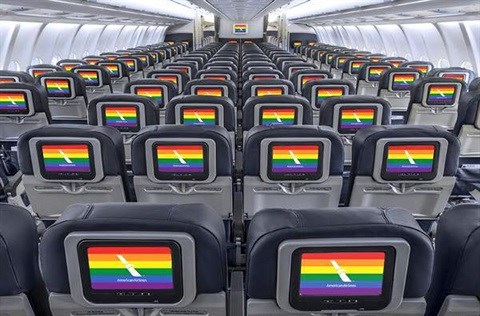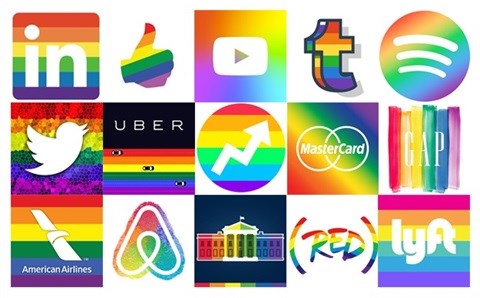Somewhere over the rainbow...
The kaleidoscope of colour that greeted the US Supreme Court decision on marriage equality on Friday, was significant for many reasons, not least, as a case study for brands following key news events.
Rainbows appeared on historic buildings like the White House, brought both by the rain and lighting effects; to brand logos and brand properties; and Facebook avatars courtesy of a new trendsetting tool by Facebook, following on the SCOTUS decision to make same-sex marriage legal in all of the superpower's 50 states.
As actor and cultural activist George Takai commented, after posting a pic of the 'rainbow effect' on the interwebs, with the comment: "When I checked Facebook this morning, it was as if 1000 unicorns had eaten nothing but skittles."

Facebook took the unusual decision of providing a proprietary tool for users to include a rainbow filter over personal Facebook avatars. The 'Celebrate Pride' page was the first time Facebook created a tool of its own.
Google also added rainbow art work and hearts to all searches associated with 'gay marriage' or 'same-sex marriage' terminology, reported Mashable.com.
Whether it was a data driven-social experiment or not, as surmised by The Atlantic, it was profound and meaningful to see and a celebration of the power of social media in celebrating change.
Facebook is looking at social activism and how solidarity spreads from person to person. The Atlantic reported that one million people changed their profile pictures within the first few hours and based on their understanding of the research Facebook is busy with, "at stake is our understanding of whether groups of citizens can organise online - and how that collective activity affects larger social movements".
It is extraordinary events like this that provide an opportunity to measure change, encourage change and celebrate change. Whether it is 'slacktavism" or armchair activism, all our online actions are being tracked and analysed and The Atlantic concludes the in-depth article with this question: "Does the courage to visibly - if virtually - stand up for what a person believes in have an effect on that person's social network, or is it just cheap, harmless posturing?"

There is nothing cheap or posturing about some of the world's biggest global brands getting involved in the pride party and changing their logos and brand messaging to reflect support of the marriage equality decision in the United States. Brands have massive power to influence as we all know well.
The best reactions from brands were captured by the many media who turned their logos the colours of the rainbow too on social media. These are brands that have mastered the art of social listening over the years and savvy brand engagement - they were ready to launch as soon as the SCOTUS decision was made. (For more tips on social media engagement for brands, go to BrandWatch.)
Mashable and The Gaily Grind captured the best social media reactions and ads from top brands like Visa, Macy's, Kelloggs, Absolute Vodka, KFC and even Game of Thrones. Dozens of brands chose to celebrate love and the overriding theme was #Lovewins.

Other key catchphrases were: "Love is love"; "Happiness matters"; Being proud; and many which alluded to "being yourself" and "being accepted", as the Gaily Grind listed.
These days top agencies and brands have social media teams comprising strategists, analysts, creatives, media specialists and journalists, who monitor the media and key events in the world 24/7, so that they can advise brands on how to react or whether to react.
















